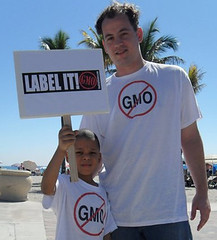In reviewing the many battles raging on the food we eat and products we use, it appears that the right to know laws [1] are the sticking points in these controversies. The current right to know laws are weak and effective in terms of addressing food and product ingredients. [2] While the majority of consumers presume that consumer protection laws are designed to guard individual rights, the reality is that the purpose of most consumer protection laws is to promote the well-being of the population. This renders their focus to social concerns, as opposed to legal protection. This often is in direct conflict with the green movement, which acknowledges the damages to the environment by human action and proposes changes in past behaviors to alter the course of destruction. The green movement seeks to adopt long-term effective solutions to problems of global warming and climate change and their impact on people and specifically on the food supply, while many other concerns seek immediate and often questionable solutions to problems such as world hunger.
This issue clearly can be seen in the debate over genetically modified organisms (GMOs). In an effort to ensure an adequate food supply, large companies, such as Monsanto and DuPont, design seeds that are resistant to drought, disease and other adverse weather conditions that lead to soil erosion and depletion of nutrients. The general perception is that research on these projects is undertaken with such a sense of urgency that caution generally is thrown to the wind, and the quality of food and potentially harmful effects of GMOs have been considered less important than the quantity of food produced. The consumers’ right to know the hazards of GMOs has been ignored largely through the refusal to even note on packaging that products contain genetically modified ingredients. The outcry of environmentalists and supporters of the green movement is often criticized, based on the notion that GMOs represent the quickest solution to address the issue of crop failures and the resulting threat to the food supply. The alternative of organic farming is considered too costly, unpredictable and incapable of producing enough food to feed large populations.
A second area of concern over the ingredients in food can be found in numerous articles on the Internet denoting the “horrible” ingredients contained in food products. The bad contents in food run the gamut from insect parts to carcinogens and unlisted animal byproducts. Many of these ingredients are harmful to the body while others simply represent a violation of choices we are free to make, i.e., vegans and vegetarians have the right to not eat animal byproducts. Refusal to label the contents of food ingredients violates the public’s right to know the contents of these foods.
The course of action needed to address the issue of labeling is twofold–legal and economic. The legal solution is to revise the consumers’ right to know the contents contained in food. Currently, food labeling laws address nutritional content, particularly in terms of calories, fat, cholesterol and other substances, such as sodium and percent of daily requirement of certain predetermined nutrients and vitamins. The law in this regard desperately needs to be expanded to include other ingredients, which are unproven as to their safety, such as GMOs, or those that may be distasteful to certain people or deemed not in accordance with certain lifestyles. This really is no different from stating that products contain ingredients that are known allergens, such as milk or peanuts. The second course of action involves consumers using their buying power to speak for them. This process starts with each of us educating ourselves on the reputable businesses that insist on selling products that label ingredients. While these products may be more expensive now, that will change when they become the norm, rather than the exception.
Browsing the Web is a good place to start to learn about unacceptable ingredients in food. Whole Foods has a great site with a list of unacceptable foods. [3] Also, contact your legislators and voice your concern over the issue of food labeling and its importance to your family’s health. We have to fight for our right to know the ingredients in our food and other products of daily living. To do so is to live green, be green.
_________________
1. http://en.wikipedia.org/wiki/Right_to_know
2. http://businessethicsblog.com/2010/10/01/consumers-right-to-information/
3. http://www.wholefoodsmarket.com/about-our-products/quality-standards/unacceptable-ingredients-food


